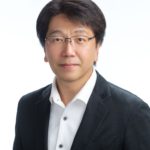Prof. Isamu Yamamoto
Professor Keio University
In the face of labor shortages, work-style reforms have been taken in recent Japan with the aim of encouraging the participation of diverse talents and increasing productivity. For example, many firms, especially large and/or listed ones, are working on “health management” to increase productivity by addressing the improvement of workers’ health as a management strategy. Similarly, “human capital management,” which aims to maximize the value of human resources as capital, thereby increasing firm’s value over the medium to long term, is also addressed. This movement is replacing the traditional trade-off relationship between worker’s well-being and firm’s value with the compatible one between the two. In this speech, from the perspective of labor economics, I will present empirical findings from several studies using worker and firm data to show a possible positive relationship between worker’s well-being and firm’s value. For example, implementing health management measures can lead to improved health outcomes, which in turn can contribute to an increase in the firm’s profitability. Additionally, improved sleep and work engagement among employees can also lead to higher profit rates for the firm.



